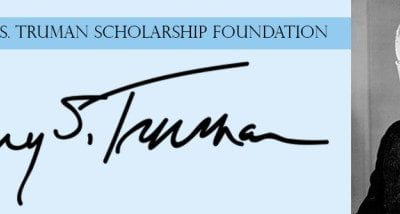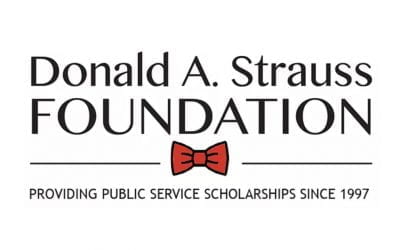About
The Knight-Hennessy Scholars program cultivates a diverse, multidisciplinary community of emerging leaders from around the world and guides them to collaborate, innovate, and communicate as they prepare to address the complex challenges facing society.
Knight-Hennessy Scholars become part of a supportive family of fellow scholars. Through the King Global Leadership Program, scholars will broaden knowledge, develop skills, and strengthen character; this platform provides a collection of community experiences, workshops, meetings with leaders, domestic and global study trips, and personal development opportunities. Knight-Hennessy Scholars also receive funding for graduate study at Stanford University.
Addressing some of the most important problems that the world faces today around the environment, healthcare, education, inequality, and social justice requires leadership with multidisciplinary and multicultural understanding. As a Knight-Hennessy Scholar, you will develop both the depth and range of subject expertise to confront the intractable challenges and opportunities of the future. You will be part of a unique community of change agents from a diverse range of backgrounds. This is a community that will support and motivate you at Stanford and beyond.
Fields of Study
Knight-Hennessy places no restrictions on academic field of study or career aspirations. All Knight-Hennessy Scholars have to apply to and be accepted by a graduate program at Stanford at the same time they apply to Knight-Hennessy Scholars. Your graduate program will be your primary affiliation, and the Knight-Hennessy Scholars program will provide you with access to an additional community and opportunities tailored to scholars.
You are eligible to apply to the Knight-Hennessy Scholars program if you are applying to enroll in a full-time graduate program(s) at Stanford (for example, but not limited to, DMA, JD, MA, MBA, MD, MFA, MPP, MS, or PhD) or if you plan on pursuing one of Stanford’s many joint- and dual- graduate degree options (for example, but not limited to, MD+PhD, JD+MA, MBA+MS). You should check each graduate program’s website for a sense of what it seeks in candidates. You must meet the requirements for admission to your home graduate program.
Knight-Hennessy gives priority to applicants who will spend at least two years at Stanford. We do not believe one year is sufficient to form the community we envision and benefit from the leadership platform we are developing.
In the 2018 and 2019 cohorts, 40% of Scholars were pursuing PhD degrees, 37% were pursuing professional degrees (i.e. Business, Law, Medicine), and 23% were pursuing master’s degrees(i.e. MPP, MA, MS). Scholarships were awarded for completion of 53 degree programs at Stanford’s Schools, including Humanities and Sciences (27%), Engineering (22%), Medicine (16%), Law (15%), Business (12%), Education (6%), and Earth Sciences (2%).
Eligibility
SOP advises currently enrolled juniors (intending to graduate next academic year); graduating seniors (in the current academic year); and recent alumni (who graduated within the most recent academic year). If you are still in college studying for your first bachelor’s degree, you are eligible to apply as long as you will complete your first bachelor’s degree before you enroll as a graduate student at Stanford. If you hold a previous degree, please consult the Eligibility section on the Knight-Hennessy Scholars website for more information.
There are no citizenship restrictions. The Knight-Hennessy Scholars program expects that over time about one-third of Scholars will be from the U.S., and about two thirds will be from countries outside the U.S. Those numbers will fluctuate from year to year, since the goal is to admit the world’s very best students, regardless of location. Undocumented students are eligible to apply for the Knight-Hennessy Scholars program, but must meet eligibility for the graduate program, including any work requirements. For more information, please visit undocumented.stanford.edu.
The Knight-Hennessy Scholars program does not stipulate a minimum GPA. However, to be competitive, applicants should have at least a 3.7 GPA, and for many Stanford graduate programs, a 3.9+ GPA and significantly above-average test scores (such as GRE, MCAT, LSAT or GMAT) will also be necessary to achieve admissions. Applicants must also be able to demonstrate professional competence and dedication to the field of study through leadership or founding roles in academic or service organizations, entrepreneurial ventures, publications or performances, and/or significant work experience/internships related to the major.
Scholarship Benefits
Through the King Global Leadership Program (KGLP) you will build on your graduate degree program to expand knowledge, develop skills, and strengthen character. As a Knight-Hennessy Scholar, you will learn to communicate, collaborate, and innovate with your fellow scholars from other disciplines. We believe these relationships — breaking down traditional academic silos — will be essential to your ability to discover new solutions that will advance humanity. The elements of KGLP will hone your capacity for collaborative leadership. You will gain a better understanding of yourself and others, allowing you to influence and lead better.
Denning House is not a residence but serves as your convening hub, enabling our community of scholars to share ideas and experiences. The building is a dedicated space for ongoing interaction with each other, distinguished visitors, and, eventually, program alumni. The building, located in the heart of campus overlooking Lake Lagunita, features small-group spaces, a lounge (with snacks), classrooms, meeting, lecture and discussion rooms, and a dining space that can accommodate one class of scholars – up to 100 people – when we gather for regular dinners.
Scholarship: During each of the first three years of graduate study, Knight-Hennessy Scholars receive:
- a fellowship applied directly to cover tuition and associated fees, for any graduate degree(s) at Stanford to which you are admitted at the time you are selected as a scholar;
- a stipend for living and academic expenses (such as room and board, books, academic supplies, instructional materials, local transportation, and reasonable personal expenses);
- a travel grant intended to cover an economy-class ticket for one annual trip to and from Stanford.
- If your degree program exceeds three years — such as an MD or PhD program, or a Stanford dual- or joint-degree program — then your Stanford home department(s) will fund the remainder of your education to the extent consistent with its standard funding commitment for that program. (This means, for example, that your program may fund you for one additional year for some PhDs and three additional years for others.)
- Knight-Hennessy Scholars also may access supplemental funds to support academic enrichment (e.g., conference travel). Moreover, if you engage in optional research projects during the summer, the Knight-Hennessy Scholars program may provide summer funding, through separate application. In addition, Knight-Hennessy Scholars pursuing positive impact through social ventures may be eligible to apply for seed funding.
Competitiveness
In 2020, 76 Knight-Hennessy Scholars were selected from 6,171 applications. The primary selection criteria used to evaluate applicants were independence of thought, purposeful leadership, and a civic mindset.
Knight-Hennessy is a fantastic, if highly competitive, opportunity for students whose ambitious career goals are a good fit with Stanford’s graduate majors and who seek to actively collaborate with an interdisciplinary, international cohort of scholars to work on major global problems.
We should note as well that Stanford’s doctoral programs typically fully fund at least three years for their students, regardless of whether you receive the Knight-Hennessy scholarship. Students who are applying for Ph.D. programs at Stanford and want to become Knight-Hennessy Scholars should demonstrate excellence in research, as well as be able to demonstrate the capacity for positive social change in the practical sense, beyond knowledge-building contributions that have indirect social impacts.




